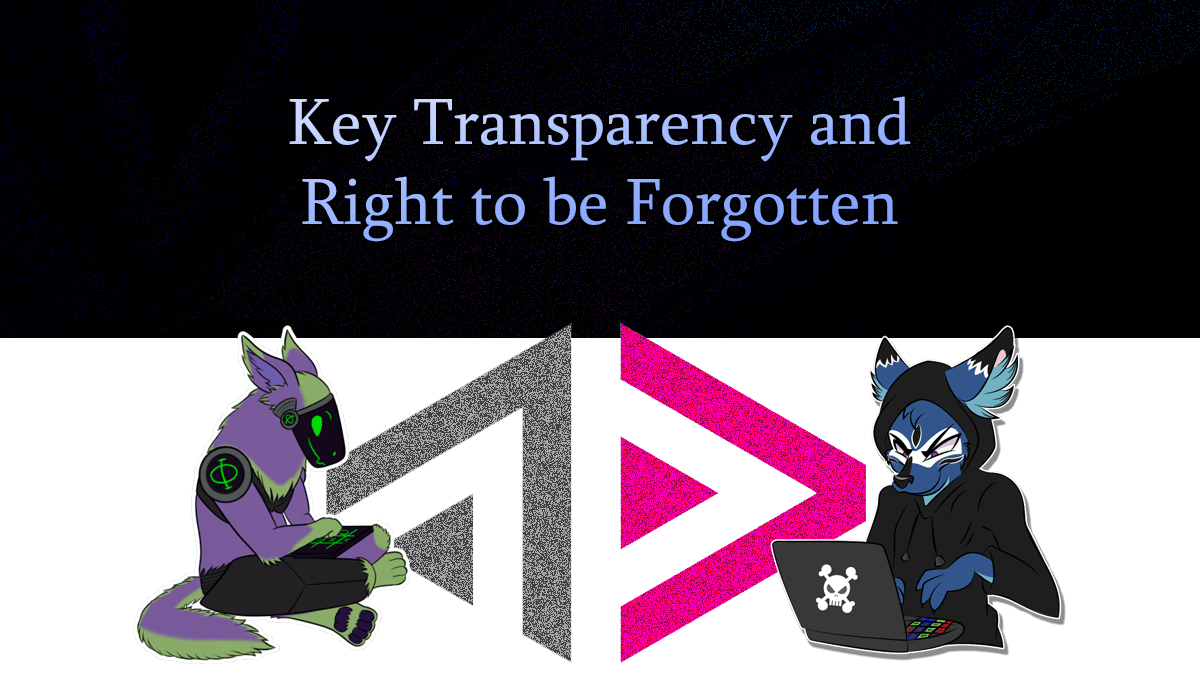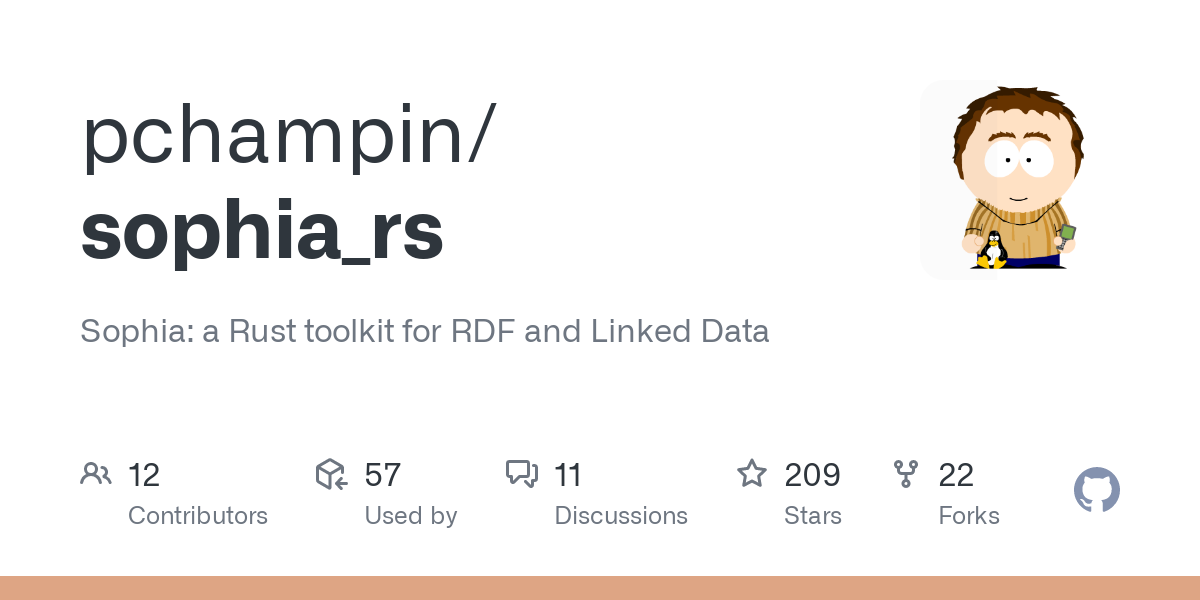- 45 Posts
- 1.11K Comments

 4·13 days ago
4·13 days agoFor the same reason that they have a website: to control their media presence and their means of content distribution.

 2·14 days ago
2·14 days agoif merging in the creative bits from each were merged into the more popular ones more often.
Yeah, the pity is that most of the times this simply doesn’t happen, and everyone wants to reinvent their own special flavor of wheel.

 2·14 days ago
2·14 days agoYou are right. I am still looking at anything related to the Fediverse as work and not as a hobby, and I shouldn’t be expecting other people to share the exact same vision and ambitions.

 2·14 days ago
2·14 days agoI kinda want to write my own client
Fair enough, every developer goes through that.
At the same time… If this is your primary motivation I would feel like there is no point in you asking for “feedback” because you are essentially looking for validation.
I don’t mean to pick on you, I just wish we collectively learned to stop this. So much effort is wasted by individuals who want to prove something to themselves and want to go out on their own, it feels like FOSS alternatives would be 20 years in the future if put worked together on 2-3 alternatives instead of 20-30 disparate projects.
If you are okay with reconsidering your position… go to Voyager’s discussion pages on GitHub, there a few issues I opened there and would like to tackle:
- make it offline-first (probably using something RxJS to store and sync application data and state through different apps)
- add support to browse subreddits (won’t require the API, and to ease the issue of network effects)
- make it less dependent on the Lemmy API and substitute for straight ActivityPub whenever possible
- use content-addressable storage for media (IPFS likely, but maybe also webtorrent)
If any of these things interest you, I’d love to have a longer chat and see if we can work together.

 2·14 days ago
2·14 days agoWhy not take an existing client like Voyager, and add the features that you are missing?
This is exactly what I am doing for “easier onboarding”. I am working on a fork of Voyager, learning my way through React Native and ionic, and adding support for Fediverser to it.
Imagine if OSes in the 90s crashed as rarely as desktop OSes today. Imagine if desktop OSes today crashed as rarely as mobile OSes today. Imagine if mobile OSes crashed rarely enough that the average consumer never experienced it. Wouldn’t that be a better state of things overall?
Depends. What is the cost to get there? Will that sacrifice openness? Will that sacrifice portability? Will that require ossified structures that will make development of new applications more difficult?
Look, the article is talking from the perspective of someone who is developing web apps in Ruby. Performance is not a huge concern. Processes being crash-proof are not a concern. You know what is the concern? To be able to validate ideas and have something that bring customers willing to pay real money to solve their real problems.
For his scenario, forcing to define everything up front is a hindrance, not a benefit. And having GP screaming at it like this for having this opinion is beyond ridiculous.
I don’t really want to be talking past each other. The point I am refuting is that even if type-safety can help reduce the amount of bugs shipped, this is not the only metric that matters to measure the value of the software being developed.
bugs are really annoying
And being late or never delivering out of fear of shipping buggy code is even worse.
Some years ago, I worked on a crypto project that was financed via an ICO. This meant that whatever money the company was going to get was already in their hands, and their only job was to make sure they could prove they’ve done a best effort to deliver what was promised to investors.
Because of these incentives, the engineers were more concerned about covering their asses regarding bugs than to actually get the software out in the hands of users. The implementation was in python, and to the team it was easier to justify spending time on getting 100% mypy coverage than to get things in hands of users to see the value of what we promised to deliver.
In the end, by the time the team managed to deliver, the code was super well-tested, there were 0 mypy warnings and absolutely zero interest from other people in adopting our tool because other competitors have launched a whole year before them.
How many billion dollar companies were built on dynamically typed languages? Do you think that companies/bosses/investors care about the compiler warnings or whether you can deliver/iterate faster than the competition?
nobody likes plumbing, but we all know it’s necessary.
Is it, really? Are we all working on mission critical software? We are living in a world where people are launching usable applications with nothing but the prompt to an LLM, ffs, and you are there trying to convince yourself that pleasing the Hindley-Milner gods is fundamental requirement in order to deliver anything?
Good engineering is about understanding design constraints and knowing where to choose in a myriad of trade-offs. It’s frankly weird to think that such an absolute, reductionist view like yours got so much support here.

 5·1 month ago
5·1 month agoThe idea is not to have to talk with everyone in the circle, but to have enough people to create a long tail of niche interests.

 6·1 month ago
6·1 month agoTakahe is IMO the opposite of “single user software” . It shines when you want to host multiple users with multiple different domains and identities.

 1·2 months ago
1·2 months agoRight, but the problem with them is “bad usability”, which amounts to “friction”.
Like I said in the original comment, I kinda believe that things will get so bad that we will eventually have to accept that the internet can only be used if we use these tools, and that “the market” starts focusing on building the tools to lower these barriers of entry, instead of having their profits coming from Surveillance Capitalism.

 4·2 months ago
4·2 months agorequiring a proof of identity or tracking users is a privacy disaster and I’m sure many people (especially here) would outright refuse to give IDs to companies.
The Blockchain/web3/Cypherpunk crowd already developed solutions for that. ZK-proofs allow you to confirm one’s identity without having to reveal it to public and make it impossible to correlate with other proofs.
Add other things like reputation-based systems based on Web-Of-Trust, and we can go a long way to get rid of bots, or at least make them as harmless as email spam is nowadays.

 12·2 months ago
12·2 months agoNot even the biggest tech companies have an answer sadly…
They do have an answer: add friction. Add paywalls, require proof of identity, start using client-signed certificates which needs to be validated by a trusted party, etc.
Their problem is that these answers affect their bottom line.
I think (hope?) we actually get to the point where bots become so ubiquitous that the whole internet will become some type of Dark Forest and people will be forced to learn how to deal with technology properly.

 9·2 months ago
9·2 months agoThis is not a matter for instance admins but for proper community moderation.

 4·2 months ago
4·2 months agoYes, it is possible.

 1·2 months ago
1·2 months agoMy point is that we should take their current approach as a good thing.
I"m not saying that we should blindly trust them, but I am saying that if we want corporations to Do The Right Things, then it’s a lot better to let them have a seat at the table and participate with the community than to simply ostracize them forever because of their past wrongdoings.

 41·2 months ago
41·2 months agoThey don’t “need” the SWF. If Zuckerberg wanted to simply takeover the control of ActivityPub, they could just use their existing devrel people that work with the W3C and push the changes directly at the “authoritative” organization.













Having a standard URL scheme would precisely help us develop ActivityPub clients and get rid of application-specific servers.